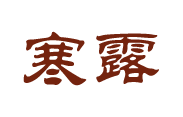
寒露,是二十四节气之第十七个节气,秋季的第五个节气。斗指辛;太阳到达黄经195°;在每年公历10月7日-9日交节。寒露,是深秋的节令,干支历戌月的起始。寒露是一个反映气候变化特征的节气。进入寒露,时有冷空气南下,昼夜温差较大,并且秋燥明显。
Cold Dew is the 17th solar term of the year and the fifth in autumn. It occurs when the sun reaches the celestial longitude of 195° and typically falls between October 7th and 9th on the Gregorian calendar. Cold Dew marks the beginning of late autumn and the month of Xu in the Chinese lunar calendar. It reflects characteristics of changing weather, with cold air moving southward, significant temperature differences between day and night, and increased dryness in the autumn air.
寒露以后,北方冷空气已有一定势力,中国大部分地区在冷高压控制之下,雨季结束。受冷高压的控制,昼暖夜凉,白天往往秋高气爽。从气候特点上看,寒露时节,南方秋意渐浓,气爽风凉,少雨干燥;北方广大地区已呈现冬天景象。寒露传统习俗主要有赏枫叶、吃芝麻、吃螃蟹、饮秋茶等。
After Cold Dew, cold air from the north gains strength, and much of China comes under the influence of cold high-pressure systems, marking the end of the rainy season. Controlled by these high-pressure systems, the days become warm and the nights cool, resulting in pleasantly crisp autumn weather in the daytime. In terms of climate, during the Cold Dew period, the southern regions experience a gradual increase in autumnal feelings with cool and dry weather, while many northern areas already resemble winter.Traditional customs associated with Cold Dew include admiring maple leaves, consuming sesame, eating crabs, and enjoying autumn tea.
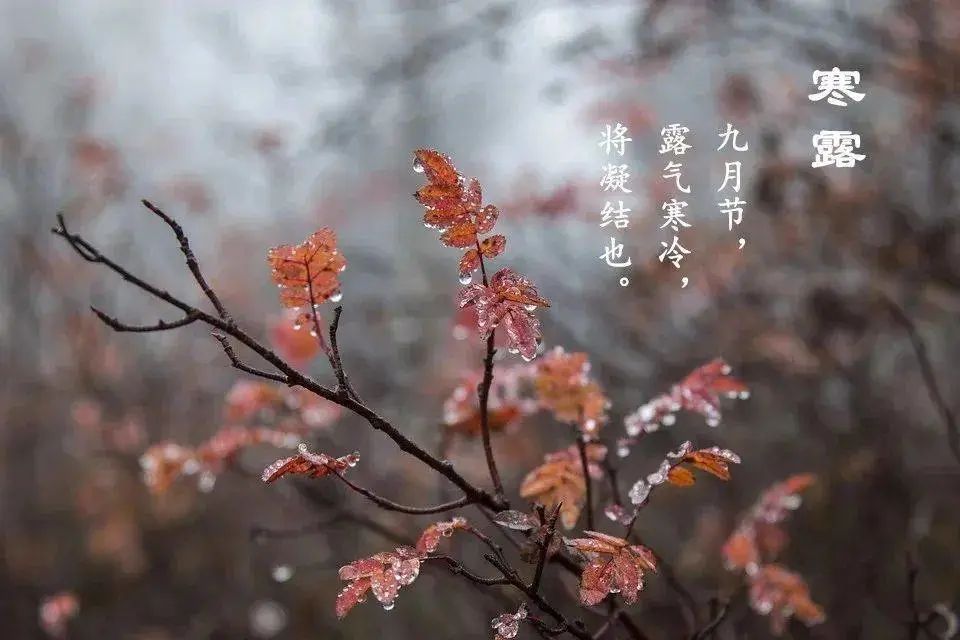

Origin
寒露,是干支历酉月的结束以及戌月的起始。夜晚,仰望星空,会发现代表盛夏的“大火星”(心宿二)已西沉。寒露后,太阳高度继续降低,气温逐渐下降。寒露与白露节气时相比气温下降了很多,寒生露凝,因而称为“寒露”。《月令七十二候集解》说:“九月节,露气寒冷,将凝结也。”此时气温较“白露”时更低,露水更多,昼夜带寒意。
Cold Dew marks the end of the ninth month in the traditional Chinese lunar calendar and the beginning of the tenth month. During the night, when you look up at the starry sky, you will notice that the prominent summer star, Antares (Alpha Scorpii), has already set in the west. After Cold Dew, the sun's altitude continues to decrease, and the temperatures gradually drop. Compared to the previous solar term, White Dew, the temperatures during Cold Dew are even lower, and dew condenses, hence the name Cold Dew. Collection and Explanation of the 72 Hou of the Monthly Calendar states, In the ninth month, the dew is cold, nearing condensation.During this time, the temperatures are colder than during White Dew, and there is more dew, making both day and night feel chilly.
在中国民间,有“露水先白而后寒”之谚言,其意为经过白露节气后,露水从初秋泛着一丝凉意转为深秋透着几分寒冷的“白露欲霜”。关于寒露的谚语还有:“寒露过三朝,过水要寻桥”,指的就是天气已带寒意,不能像以前那样赤脚趟水过河或下田了。寒露期间,人们可以明显感觉到温差变化。从洁白晶莹的露气转为寒冷欲凝,生动地反映出气温的不断下降。随着寒气增长,万物也逐渐萧瑟。
In Chinese folklore, there is a saying, Dew turns white before it becomes cold, which means that after the White Dew solar term, the dew, initially carrying a hint of coolness in early autumn, gradually transforms into a deeper cold, indicating the approach of frost. There is also a proverb about Cold Dew that goes, After three mornings of Cold Dew, you'll need to find a bridge to cross the water,signifying that the weather has become cold, and you can't walk barefoot through the river or go into the fields as before. During Cold Dew, people can clearly feel the temperature difference. The transition from pure, glistening dew to a cold and almost frozen state vividly reflects the continuous drop in temperature. As the cold air intensifies, everything gradually withers.
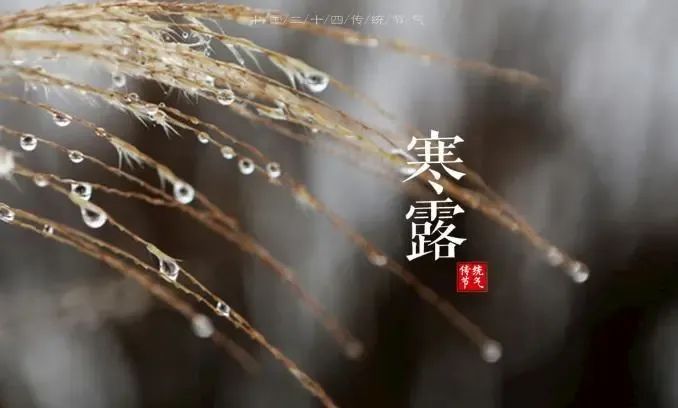


Visiting Fragrant Hills to Admire Red Leaves
寒露时节,很多地方有赏枫叶的习俗,“霜叶红于二月花”说的也是这个季节。赏枫叶的这个“赏”字非常重要,不同于坐在窗台上或者走到街道上看看叶子就算了,必得身临其境方能品味其妙。
During the Cold Dew season, many places have the tradition of admiring maple leaves, as reflected in the saying, Frosty leaves are redder than flowers in February. The act of admiring the maple leaves is crucial here. It's not just about glancing at leaves from a window or on the street; one must be present to truly appreciate their beauty.
适合寒露观红叶的是北方地区,尤其是黄河以北。北京地区观赏红叶的时期是10月中旬至11月上旬,其中最佳时期是10月15日至30日。可以说,香山是中国国内最具口碑的赏红叶地点,说到红叶人们都会不自觉地想到、提及。寒露时节到香山赏红叶,早已成为北京市民的传统习惯与秋季出游的重头戏。
The best time to admire red leaves during Cold Dew is in northern regions, especially north of the Yellow River. In Beijing, the ideal period for red leaf viewing is from mid-October to early November, with the peak occurring from October 15th to 30th. Fragrant Hills (Xiangshan) is renowned as one of the most reputable places in China for admiring red leaves. It has become a traditional habit for Beijing residents to visit Fragrant Hills during the Cold Dew season, making it a highlight of autumn outings.


Emphasizing Health by Consuming Sesame
寒露到,天气由凉爽转向寒冷。根据中医“春夏养阳,秋冬养阴”的养生理论,这时人们应养阴防燥、润肺益胃。于是,民间就有了“寒露吃芝麻”的习俗。芝麻,在《神农本草经》和《本草纲目》等医药学专著里都享有很高的评价,可广泛应用于食疗。还有谚语说:“芝麻绿豆糕,吃了不长包。”这道出芝麻与绿豆都具有排毒的功能。用芝麻榨取的香油,不仅是热菜和凉拌菜的调味佳品,也广泛用于食疗解毒。
As Cold Dew arrives, the weather shifts from cool to cold. According to traditional Chinese medicine's health theory of nourishing yang in spring and summer, nourishing yin in autumn and winter, people should focus on nourishing yin to prevent dryness, moisten the lungs, and benefit the stomach. Thus, the custom of eating sesame during Cold Dew emerged. Sesame has been highly regarded in medical treatises such as the Shennong Ben Cao Jing and the Ben Cao Gang Mu and is widely used in dietary therapy. There's a saying that goes, Sesame and mung bean cakes, eating them prevents skin issues, which indicates that both sesame and mung beans have detoxifying properties. Sesame oil, extracted from sesame seeds, is not only a great seasoning for hot and cold dishes but is also extensively used in dietary therapy for detoxification.
此外,由于寒露与重阳节往往相近,人们在这个时节还要吃花糕,寓意“步步高升”。花糕主要有“糙花糕”“细花糕”“金钱花糕”。
Additionally, since Cold Dew often falls close to the Double Ninth Festival, people also eat flower cakes during this season, symbolizing rising step by step. Flower cakes come in varieties like coarse flower cake, fine flower cake, and coin flower cake.
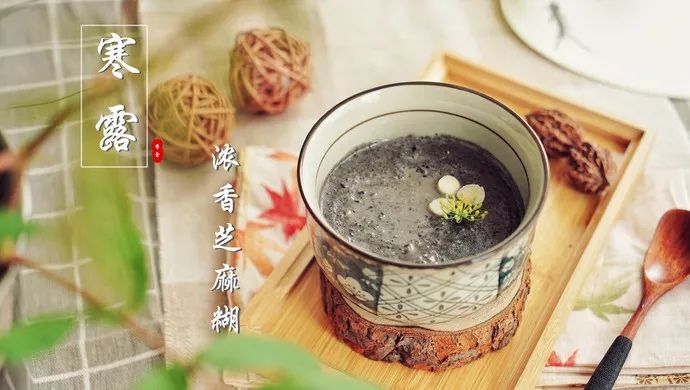

Drinking Chrysanthemum Tea
每个季节都有适合它精神气质的花。寒露到来的农历九月又称菊月,是菊花的月份。和大多数春夏盛开的花不同,菊花是反季节的花,越是霜寒露重,越是开得艳丽。寒露三候中的“菊始黄华”,指的正是菊花此时普遍开放。
Each season has flowers that suit its spirit. The lunar month of September, coinciding with the arrival of Cold Dew, is also known as the Chrysanthemum Month, making it the month of chrysanthemums. Unlike most flowers that bloom in spring and summer, chrysanthemums bloom in the opposite season, and the colder it gets with frost and dew, the more vibrant their blooms become. The phrase Chrysanthemums begin to turn yellow in the three periods of Cold Dew refers to the widespread blooming of chrysanthemums during this time.
菊花为寒露时节最具代表性的花卉,处处可见到它的踪迹。此外,由于接近重阳节,某些地区有饮“菊花酒”的习俗,所以重阳节又称“菊花节”。
Chrysanthemums are the most representative flowers of the Cold Dew season and can be seen everywhere. Additionally, due to its proximity to the Double Ninth Festival, some regions have the custom of drinking chrysanthemum wine, so the Double Ninth Festival is also known as the Chrysanthemum Festival.
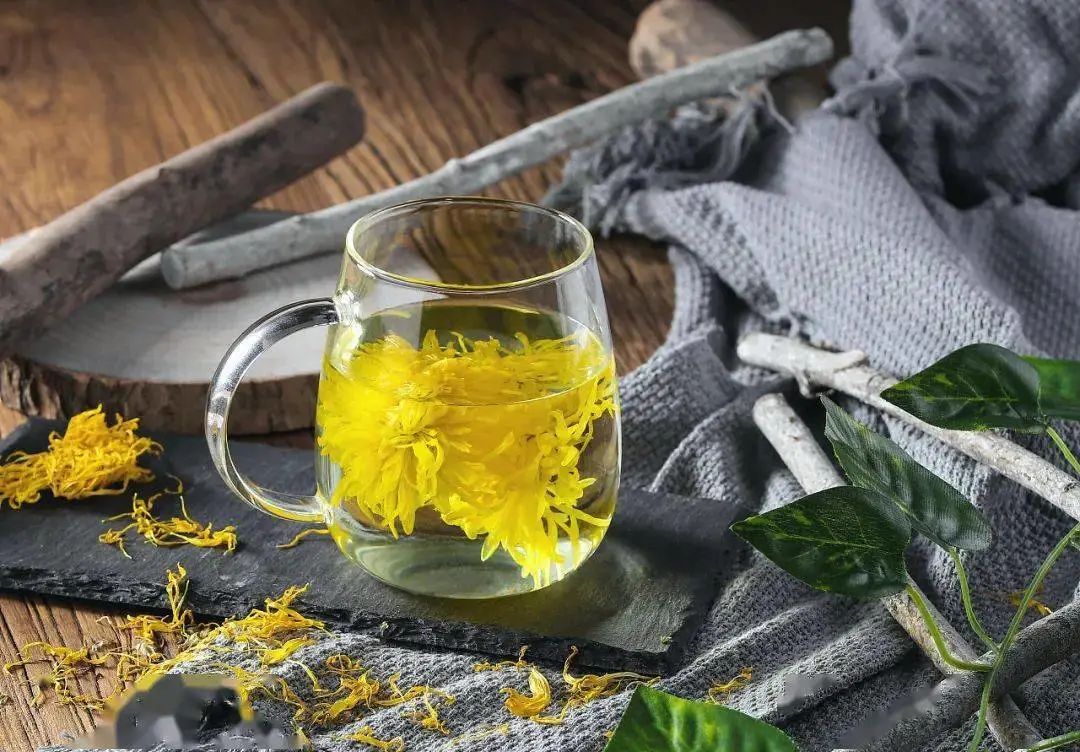
每值秋收以后,温州人善于酿制各种美酒,其中到寒露时也少不了酿制几坛菊花酒。此刻将初开的菊花和少许青翠的枝叶,掺和在粮食之中一起用来酿酒,一直到第二年这个时间才开坛饮用。据说这种菊花酒对人的身体大有益处。
After the autumn harvest, people in Wenzhou are skilled in brewing various kinds of wine, and brewing chrysanthemum wine is an essential part of the Cold Dew season. Chrysanthemum flowers in their early bloom, along with a few fresh green leaves, are mixed with grains to make the wine, which is then stored until the following year when it is ready to be consumed. It is believed that this chrysanthemum wine is highly beneficial to one's health.
在寒露这一天,古人有时还要取井中的水用来浸造滋补五脏的丸药或药酒,而今天大家则喜欢多饮枸杞菊花茶。古时人们会用寒露后新上的枸杞泡澡,这样做可以使人精神焕发。今人如果嫌麻烦,那可以泡上一壶酒或茶,每天坚持喝,也能起到“和颜悦色”的作用。
On the day of Cold Dew, in ancient times, people would sometimes take water from wells to soak herbal pills or medicinal wine for nourishing the five organs. Today, many people prefer to drink wolfberry chrysanthemum tea. In ancient times, people would bathe in freshly picked wolfberries after Cold Dew, which would invigorate them. Nowadays, one can simply make a pot of wolfberry chrysanthemum tea and drink it every day, which can also have a beautifying effect.
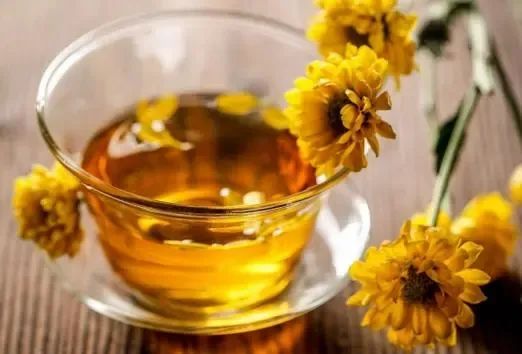

By the riverside in autumn, enjoy drunken river crabs
寒露时节,全国大部分地区已进入秋季。在江南地区,人们除了赏菊花,还有吃螃蟹、钓鱼的习俗,甚至有“秋钓边”的说法。其含义就是,每到寒露时节,气温快速下降,深水处太阳已经无法晒透,鱼儿便都向水温较高的浅水区游去,便有了人们所说的“秋钓边”。
During the Cold Dew season, most parts of the country have entered autumn. In the Jiangnan region, in addition to admiring chrysanthemums, there is a custom of eating crabs and fishing, even to the extent of saying Autumn fishing by the side. This means that as the temperature rapidly drops during the Cold Dew season, the deep waters no longer receive direct sunlight, causing fish to migrate to shallower, warmer waters, giving rise to what people call Autumn fishing by the side.
湘南产桐子、油茶的地区均有禁山习俗,寒露开禁后方准拣山。大人小孩在这天都会上山采摘茶籽。
In areas where tung trees and tea oil trees are produced in southern Hunan, there is a custom of lifting the mountain ban after Cold Dew. Both adults and children go up the mountains on this day to pick tea seeds.
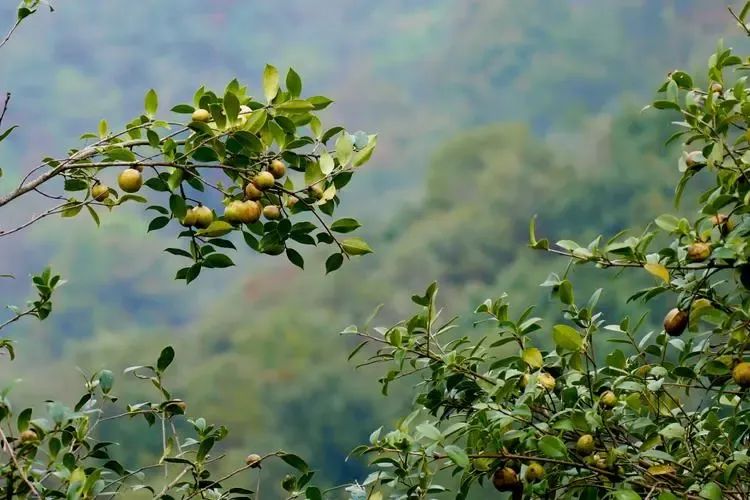
湘西侗族人民有寒露制腌鱼的习俗。据说在这天用米酒、食盐、糯米饭、辣椒面、花椒粉、姜丝等作料腌制的鱼味道特别好。
In Xiangxi, the Dong ethnic people have a tradition of preserving fish during Cold Dew. It is said that on this day, they use ingredients such as rice wine, salt, glutinous rice, chili powder, Sichuan peppercorn powder, and ginger to marinate the fish, resulting in a delicious flavor.
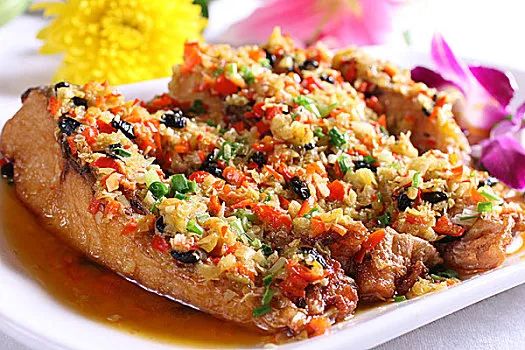
寒露前后,虾蟹繁多。老南京人有寒露节气蒸螃蟹的习惯。俗话说:“寒露发脚,霜降捉着,西风响,蟹脚痒。”此时雌蟹卵满、黄膏丰腴,正是吃母蟹的最佳季节。所以,寒露节后,不妨进食几只肥蟹来满足自己的舌尖味蕾。
Around Cold Dew, there is an abundance of shrimp and crabs. In Nanjing, it is customary to steam crabs during the Cold Dew season. There's a saying: During Cold Dew, the feet itch, and when the west wind blows, the crabs come out. This is the time when female crabs are full of eggs and have rich roe, making it the best season to enjoy female crabs. Therefore, after Cold Dew, you can indulge in a few fat crabs to satisfy your taste buds.
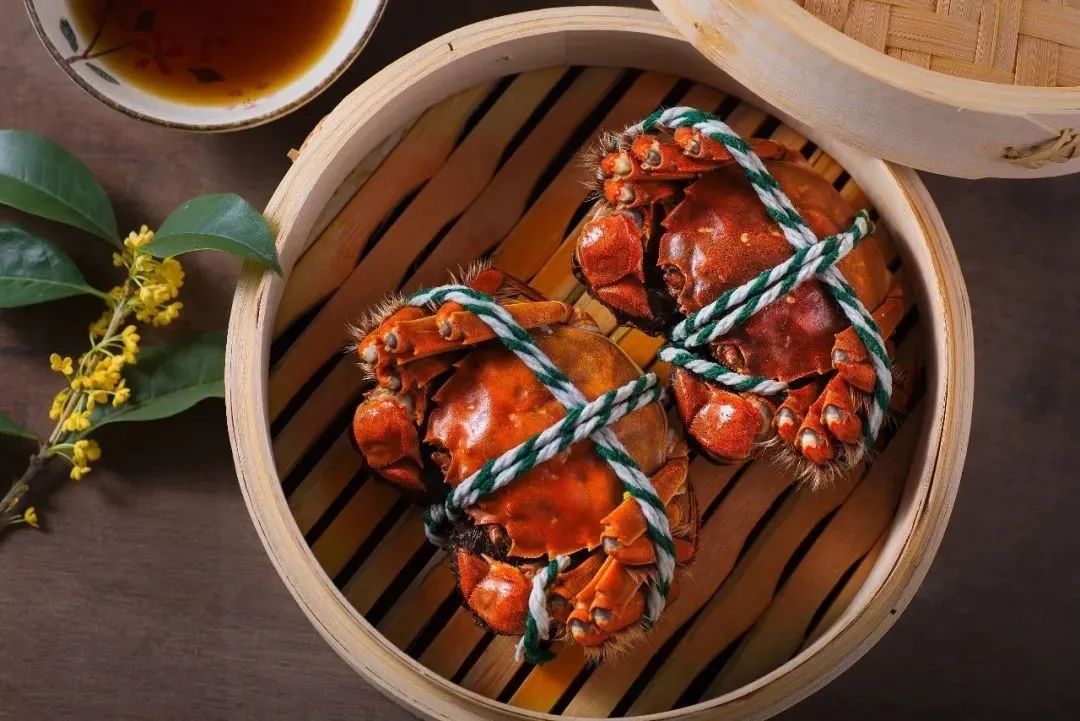

Picking Autumn Tea
寒气露冷,秋分至寒露,为秋茶。秋茶中以正秋茶为最佳,每年寒露的前三天和后四天所采之茶,谓之正秋茶。茶分春秋,喝茶却能不分时间地点。寒露已过,新茶已上。
As the cold air sets in and the dew turns cold, from the Autumnal Equinox to Cold Dew, it's the season for autumn tea. Among autumn teas, Zhengqiu tea is considered the best, referring to tea leaves picked during the three days before and four days after Cold Dew. Tea may be categorized by spring and autumn, but tea drinkers don't need to worry about the time and place. Cold Dew has passed, and new tea has arrived.
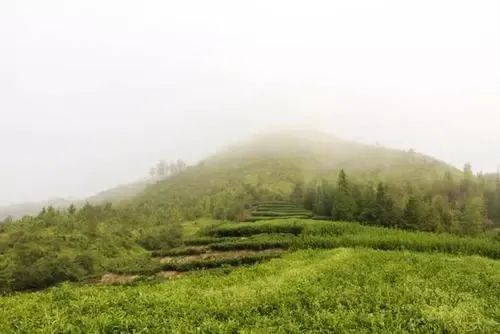
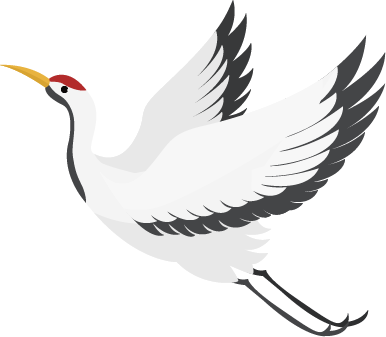
《池上》
(唐)白居易
袅袅凉风动,凄凄寒露零。
兰衰花始白,荷破叶犹青。
独立栖沙鹤,双飞照水萤。
若为寥落境,仍值酒初醒。
The Pond
Bai Juyi(Tang Dynasty)
On tranquil pond, a zephyr sweeps so light,
Cold Dew descends with melancholy's plight.
Orchids fade, their petals pale as day,
Lotus leaves remain, in verdant array.
A heron stands alone upon the sand,
Two fireflies dance, a love so grand.
In solitude, this scene does grace,
As wine awakens, in this quiet place.
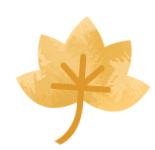
《败荷鹡鸰图》
(明)唐寅
飞唤行摇类急难,
野田寒露欲成团。
莫言四海皆兄长,
骨肉而今冷眼看。
Picture of Defeated Lotus and Wagtail
Tang Yin(Ming Dynasty)
In flight, they cry, struggle, and strive,
In the wild fields, as Cold Dew does arrive.
Don't claim kinship, as brothers they feign,
Yet now they gaze, with cold eyes, disdain.
图片来源于网络
翻译 / 王影





